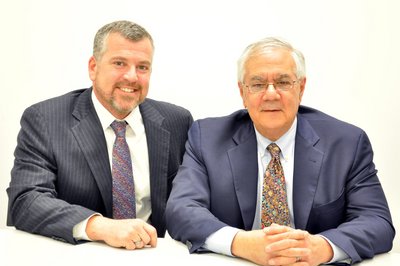Former Congressman Barney Frank paid a visit to Philadelphia May 4 to receive the International Role Model Award at the International Equality Dinner during Equality Forum. He sat down with PGN to talk about everything from his Congressional highlights to his hopes for future LGBT victories. Frank was the first-ever member of Congress to willingly come out, which he did in 1987. He retired last year, shortly after marrying partner Jim Ready. Settling into life post-public office has been a challenge, he said, although a welcome one. “It has been a big adjustment, but not in the sense of not being there,” he said. “I started with political work 45 years ago and I am very happy not to be there. I haven’t fully unpacked from 30 years in Washington, D.C.” Frank voluntarily came out in 1987, at a time when the LGBT community was largely still shunned and feared. But his coming-out ultimately helped him to fulfill the obligations of public office, he said. “I believe there were all advantages and the major advantages were all personal. It is interesting in some ways when people accuse politicians of being inauthentic. Well, I was the first member of Congress ever to volunteer that I was gay. I was not inauthentic and it certainly was an advantage dealing with LGBT issues,” he said. “I was in a position to talk to my colleagues on a personal basis: Legislating is a very personal business and that was a benefit.” When dealing with LGBT-equality issues, such as same-sex marriage, his relationship with Ready was helpful in relating to his fellow lawmakers. “For LGBT-specific legislation, having a face on the issues we are dealing with had a great deal of impact, and so the fact that people knew me and Jim was a good thing,” he said. During his tenure, Frank was instrumental in a number of pro-LGBT pieces of legislation. He recalled his efforts to oppose the immigration law that excluded people from coming into the country based on their sexual orientation. “I remember reading when I was 13 or 14 — when the New York Times was calling us perverts—that if you are gay or homosexual, you can’t get a Social Security card, and that kept me in the closet. I thought, ‘My God, my country can’t trust me,’” he said. “I remember learning when I was in college, under the American immigration law until 1986, people who were ‘sexual deviants’ could not come to America. So I got on the Immigration committee and was determined to get rid of that. I wasn’t out yet, but I insisted on getting that language replaced and getting this repealed and, as it was negotiated, I came out. And in 1990 the bill was repealed.” Frank was the lead sponsor of the Employment Nondiscrimination Act and a strong proponent of such measures as the Domestic Partnership Benefits and Obligations Act and the repeal of “Don’t Ask, Don’t Tell.” However, he gave an important piece of advice to out LGBT legislators: Don’t solely focus on LGBT issues. “Don’t let them put you in the box saying that is all you’re going to do. There is a group of people who are against us because of who we are; forget them. There is no point in trying to win them over. The danger you have is that people are uneasy and some people say that because you are gay, that is all you are going to worry about. It is very important to show them that, while you are supportive of equality for us, you are focused on other issues.” Frank also said the LGBT community at large should take a stronger role in advocating for itself and its rights. “Stand up for yourself. If you’re a teen and in a homophobic situation, just stay true to yourself; don’t push everybody else around and don’t let people push you around,” he said. “We were at a point where we would accept tolerance; however, we are at the point where we need to move forward. Don’t tell me you love and care for me, but you are thinking of voting for someone who is going to make my life miserable and treat me unequally. People need to stop doing that. We should insist on being treated equally.”
Newsletter Sign-up
